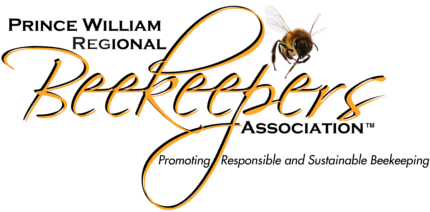See link here: http://www.southernsare.org/News-and-Media/Press-Releases/Virginia-Beekeepers-Successful-in-Rearing-Local-Honeybee-Colonies
Virginia Beekeepers Successful in Rearing Local Honeybee Colonies
Candace Pollock (cpollock@uga.edu)
06/08/2011

GAINESVILLE, Virginia – Beekeepers in Virginia striving to improve the health of their colonies are finding success by reviving what many consider to be a lost sustainable beekeeping practice.
Through a $14,736 Southern Sustainable Agriculture Research & Education (SARE) Farmer/Producer Grant, the Prince William Regional Beekeepers Association is seeing higher winter survival rates of honeybee hives started from nucleus colonies compared to packaged honeybee hives. Nucleus colonies are “mini hives” made from taking pieces of the main hive and introducing a queen or encouraging the bees to rear a new queen, thus forming a new hive.
“What we are doing is not anything new, but it wasn’t being taught anymore. It’s like a lost art,” said Karla Eisen of the Prince William Regional Beekeepers Association. “We are just trying to bring this sustainable process back into practice.”
The goals of the two-year research were to address the poor performance of imported bees, provide a way for beekeepers to produce their own hives, and eliminate the threat of Africanized honeybees.
“The plight of the beekeeper and the honeybees is a serious situation,” said Eisen, pointing to the 30 percent loss of managed honeybee colonies last winter addressed in the recent annual report from the USDA and Apiary Inspectors of America. “The No. 1 concern for Virginia beekeepers is the ability to become more sustainable and less reliant on bees imported from other states.”
In the first year of study, 83 percent of nucleus-started hives survived the first season, compared to 68 percent of the package-started hives. The survival rate increased in the second year, with 70 percent of the nucleus-started hives surviving compared to 40 percent of the packaged hives.
Eisen speculates that such factors as queen genetics, less stress, and the environment are playing a role in higher survival rates.
“The queen is the key to the entire hive. When you have a queen raised locally, and more genetically adapted to the environment of the region, then you are more likely to have a higher survival rate of the hive than from a queen reared in California and shipped to Virginia,” said Eisen. “Also, it’s a much more natural process to split hives into nucleus colonies than to install a package of bees, but it does take time. In the commercial industry, the rearing of the queen may be more rushed and my general feeling is that there is more chance queens are not being mated properly, especially early in the season.”
Eisen describes the natural process of queen rearing as “magical.”
“Every egg has a shot at developing into a queen,” said Eisen. “But if you pull an egg or larva less than four days old on a frame from a beehive and put it into a queen-less nucleus colony, you have a good chance that it will develop into a queen. Every larvae gets royal jelly for three days, but for those raised to be queens, they get royal jelly for a longer period of time. The bees just know and that’s what is so magical about it.”
Despite the success of producing and maintaining local honeybee colonies, there are limitations to their management. In Virginia, for example, there are only certain times of the year when a new queen can be reared and mated to create new colonies.
“Spring is an especially difficult time,” said Eisen. “If you are getting a lot of rain, forget about it. That queen is never going to be well-mated.”
To combat this challenge, five beekeepers participating in the SARE study produced new nucleus colonies from overwintering nucleus colonies to be made available to other beekeepers, and were welcomed with overwhelming success. The group had an 80 percent success rate in the first year and a 75 percent success rate in the second year.
“We more than tripled the number of nucleus colonies made from 10 in the first year to 34 in the second year, and nearly quadrupled the number of nucleus colonies made available to new beekeepers from 4 in the first year to 19 in the second year,” said Eisen. “And the majority of the colonies were produced from locally reared queens.”
The Prince William Regional Beekeepers Association is leading educational efforts to train beekeepers on producing nucleus colonies and rearing queens from their own hives. To learn more, log to http://pwrbeekeepers.com.
“The long term benefits of this project have been healthier colonies of bees headed by more locally produced queens and/or queens with hygienic attributes, more bees and queens produced locally and made available to beekeepers, and increased sustainability of our beekeeping association and beekeeping within the region,” said Eisen.
A final report detailing the project (FS08-223), “Promoting Sustainable Beekeeping Practices Through Local Production of Nucs (Nucleus Colonies) and Local Queen Honeybees,” can be found on the national SARE projects database.
Farmer/Producer Grants, one of Southern SARE's seven grant opportunities, are designed for farmers to conduct research, marketing and education projects. Any producer or producer organization in the Southern region is eligible to apply for a grant. Learn more.
--30--
Published by the Southern Region of the Sustainable Agriculture Research and Education (SARE) program. Funded by the USDA National Institute of Food and Agriculture (NIFA), Southern SARE operates under cooperative agreements with the University of Georgia, Fort Valley State University, and the Kerr Center for Sustainable Agriculture to offer competitive grants to advance sustainable agriculture in America's Southern region.























